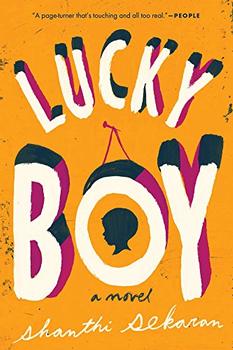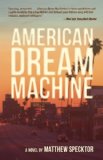Summary | Excerpt | Reading Guide | Reviews | Beyond the book | Read-Alikes | Genres & Themes | Author Bio

Telegraph Avenue is the great American novel we've been waiting for. Generous, imaginative, funny, moving, thrilling, humane, triumphant, it is Michael Chabon's most dazzling book yet.
As the summer of 2004 draws to a close, Archy Stallings and Nat Jaffe are still hanging in there - longtime friends, bandmates, and co-regents of Brokeland Records, a kingdom of used vinyl located in the borderlands of Berkeley and Oakland. Their wives, Gwen Shanks and Aviva Roth-Jaffe, are the Berkeley Birth Partners, two semi-legendary midwives who have welcomed more than a thousand newly minted citizens into the dented utopia at whose heart - half tavern, half temple - stands Brokeland.
When ex–NFL quarterback Gibson Goode, the fifth-richest black man in America, announces plans to build his latest Dogpile megastore on a nearby stretch of Telegraph Avenue, Nat and Archy fear it means certain doom for their vulnerable little enterprise. Meanwhile, Aviva and Gwen also find themselves caught up in a battle for their professional existence, one that tests the limits of their friendship. Adding another layer of complication to the couples' already tangled lives is the surprise appearance of Titus Joyner, the teenage son Archy has never acknowledged and the love of fifteen-year-old Julius Jaffe's life.
An intimate epic, a NorCal Middlemarch set to the funky beat of classic vinyl soul-jazz and pulsing with a virtuosic, pyrotechnical style all its own, Telegraph Avenue is the great American novel we've been waiting for. Generous, imaginative, funny, moving, thrilling, humane, triumphant, it is Michael Chabon's most dazzling book yet.
Michael Chabon knows how to do narrative sweep; he knows how to write an epic. The author is skilled at knitting the various elements of a story together with material borrowed from a larger setting or theme...continued
Full Review
(773 words)
This review is available to non-members for a limited time. For full access,
become a member today.
(Reviewed by Poornima Apte).
In Telegraph Avenue, Luther Stallings, Archy's dad, was once a star in blaxploitation films that were all the rage in the '70s. Even though the term appears to be a loaded word, blaxploitation movies were actually powerful vehicles of self-identification for many blacks. Understandably this view was not held by all. Many black organizations including the NAACP believed most blaxploitation movies reinforced common white stereotypes about black people.
 During the heyday of blaxploitation movies in the early '70s, the civil rights movement was still a nascent thing and black stars - especially leading heroes - were not commonly found on the mainstream Hollywood big screen. Sure there was Sidney Poitier who starred most famously in Guess ...
During the heyday of blaxploitation movies in the early '70s, the civil rights movement was still a nascent thing and black stars - especially leading heroes - were not commonly found on the mainstream Hollywood big screen. Sure there was Sidney Poitier who starred most famously in Guess ...
This "beyond the book" feature is available to non-members for a limited time. Join today for full access.

If you liked Telegraph Avenue, try these:

by Shanthi Sekaran
Published 2017
A gripping tale of adventure and searing reality, Lucky Boy gives voice to two mothers bound together by their love for one lucky boy.

by Matthew Specktor
Published 2014
American Dream Machine is the story of two talent agents and their three troubled boys, heirs to Hollywood royalty. It's a sweeping narrative about fathers and sons, the movie business, and the sundry sea changes that have shaped Hollywood and, by extension, American life
Dictators ride to and fro on tigers from which they dare not dismount. And the tigers are getting hungry.
Click Here to find out who said this, as well as discovering other famous literary quotes!